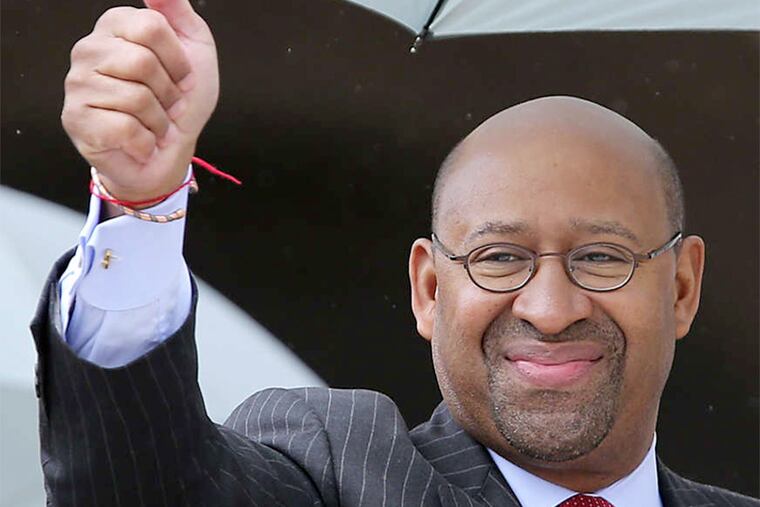Nutter, Kenney reach deal on bill to decriminalize pot
The Nutter administration and City Councilman James Kenney have reached a compromise on a bill that will reduce penalties for possession of marijuana in Philadelphia.

The Nutter administration and City Councilman James Kenney have reached a compromise on a bill that will reduce penalties for possession of marijuana in Philadelphia.
The compromise calls for a separate offense - and penalty - for public use of the drug. Those who are caught using marijuana in public would be charged with a noncriminal summary offense, and would face a $100 fine or up to nine hours of community service, according to Kenney.
People caught possessing fewer than 30 grams of marijuana, or just over an ounce, would be issued a citation and fined $25.
In neither case - possession of fewer than 30 grams, or public use - would an offender face a criminal charge or arrest.
The compromise appears to end what has been a somewhat vitriolic conflict between Kenney and Nutter following City Council's 13-to-3 vote in June to pass Kenney's bill substantially lessening the penalties for possessing small amounts of marijuana.
Kenney argued that marijuana arrests were unfairly impacting African Americans - Philadelphia police arrested 4,336 people for marijuana possession last year, 83 percent of them black - while wasting valuable police time.
Nutter, declining to immediately sign the legislation, said it was "simplistic" and did not do enough to address other issues raised by the drug's use.
Council's summer break gave the mayor extra time to consider whether he would sign the measure. But this week, with the deadline for his signature approaching, Kenney's office and the administration have been meeting to hammer out a compromise.
"I have been working with the administration for many months on this issue," Kenney said Monday. "I am very happy we have worked out a commonsense agreement that will keep police out on the street fighting crime . . . and will also save thousands of people a year from the life-altering consequences of a criminal record for a minor offense."
Nutter, speaking to reporters, said he thought the compromise "ends up putting the city and our citizens in a much better place."
"I think Councilman Kenney's advocacy here has caused all of us to talk about this and focus on this particular issue in a very, very different way," the mayor said. "We were never at odds about the goal, and we share the same goal: People should not necessarily get arrested, or be hassled, or end up with a life-changing criminal record."
Nutter said Police Commissioner Charles H. Ramsey, who had been a critic of the original bill, was part of the discussions that led to the compromise.
Ramsey said Monday that he has been assured by the city's law department that the city has the ability to enact its own statute treating possession of marijuana as a noncriminal offense. Possession remains a criminal offense under state law.
The chief change in the compromise bill is the additional charge of public smoking of the drug. Nutter had been concerned that under the original bill police would have little ability to stop public use of the drug, and that would send a message that drug use was acceptable behavior.
"Our responsibility is to balance the duties and the criteria of the law with common sense and the severity of the nature of the violation," Nutter said Monday. "I believe that the agreement that we have reached and the kinds of amendments that we're talking about, and the penalties involved, meet that test."
Said Kenney: "We saw an injustice. We recognized that injustice was pretty severe. We set out to correct it and I think we have."
A new bill, reflecting the compromise between Kenney and the mayor, is to be introduced Thursday when Council returns from its summer break. Assuming it is passed by Council and signed by the mayor, the compromise bill could become law Oct. 20.
The deal paves the way for Philadelphia to join a trend. To date, 21 states and the District of Columbia have enacted measures legalizing some form of marijuana use, according to Governing magazine, which tracks laws.
Colorado and Washington state have legalized recreational use, while the others allow pot for medical reasons. New Jersey permits medical-marijuana use. Pennsylvania's is one of several state legislatures with measures pending that would legalize marijuana.
215-854-2594